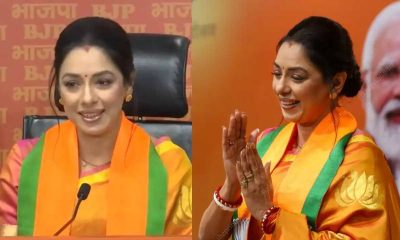Featured
Why is Sports Betting Odds Understanding Important?

Are you new to sports betting? Do you find it difficult to understand how the odds work? The betting odd is a numerical multiplier that reflects the chance of an event occurring in a sporting event and incorporates the bookmaker’s margin. The odds inform the player about the possible profit on the wager you will place on.
Whatever bet you choose, be sure you understand all of the details. This is especially crucial if you enjoy sports betting.
So, why is it critical to comprehend the odds and the factors that influence its evolving? The article discusses where to get the best deals and how to avoid being left with an empty wallet.
Introducing Betting Odds
As previously said, understanding the odds is vital before deciding to take a bet. Before proceeding, you should be aware that there are three main categories of betting odds:
- Decimal -European
- American – Moneyline
- Fractional – British
You can decide if it is worthwhile to bet after learning how they function. The odds can be used to compute the winning bet and to represent the likelihood of any given result.
The fact that odds come in various formats demonstrates that they are merely a means to an end, which is to place bets. Bookmakers are said to trade “risk measured by probability.”
Here’s an example to help you understand. When the best player in the world battles against the worst, it is evident that the best will win. This suggests that the odds of his triumph are low, while the odds of his opponent’s success are higher.
Understanding Betting Odds
The estimate of the chances or probabilities of an event occurring is the basis for making bets, and bookmakers such as 24betting India employ odds to represent the predicted probability in a more practical and intelligible manner for the client.
When placing bets, use the anticipated probability to compare the odds given by different bookmakers. However, if you believe that odds are the most important aspect of the betting process, you are not seeing the complete picture. In order to truly comprehend the meaning of odds and betting, you must also be able to compute the likelihood.
For the sake of clarity, let’s all assume that probability is measured in numerical values ranging from 0 (no event will ever occur) to 1. (the event is guaranteed to happen). The chances of any other conceivable outcomes for this event occurring are somewhere on the spectrum between the two extremes of the number we measured above.
Of course, in actuality, the player wants to know what the probability (or chance) of the selected event is (for example, the loss of an eagle). There is a simple formula for this: Acceptable outcomes / all possible outcomes.
If you bet on the eagle losing, the acceptable outcome is the loss of this side of the coin. To determine the probability value, divide the number of acceptable outcomes (in our example, only one – the loss of an eagle) by the number of conceivable outcomes (there are two of them – either heads or tails can fall out). The probability that we are aiming for is 0.5.
Calculating Betting Odds
Once you understand how to compute the probability, turning the relevant number into odds will become second nature. Decimal odds are one of three major recording formats players and bookies use. You can convert to decimal coefficients the probability that the coin will fall on the side you choose using the following simple equation: 1 / probability of the chosen outcome.
As a result, the decimal coefficient for the outcome with eagle loss is determined by dividing 1 (absolute probability) by the chance of such a condition (we know that it is 0.5). As a consequence, we obtain a decimal odds value of 2.0. You may also conduct the inverse operation: using the inverse equation, convert the coefficient to the value of the assumed probability: 1 / decimal odd = probability.
So you understand how the phenomena of coefficients work in theory; of course, you will receive a value of 100%; why does this not occur in reality? Because there is a bookmaker’s margin that must be addressed separately. Of course, you don’t have to calculate the margin; you may use internet calculators by simply putting a query into a search engine and clicking on any secure link.
Final Words
The ability to calculate probability and understand the origin of coefficients are essential components of becoming a player because you can independently calculate the expected frequency of occurrence of an event and then compare the probabilities of future events obtained by you with the available coefficients from the bookmaker. All of this knowledge fortifies you and prevents you from being duped.
Featured
Nima Sulaiman joins HiLITE Group Board, her father gifts her a Porsche
Nima expressed her gratitude for the opportunity and her eagerness to contribute to the group’s success.

In a move signalling a generational shift in leadership and a commitment to empowering women in the business world, Nima Sulaiman, the daughter of HiLITE Group Chairman P. Sulaiman, has been welcomed onto the board of directors with a stunning gesture—a Porsche worth Rs 3 crore.
At just 18, Nima began her journey with HiLITE Group as a customer service trainee at Hug a Mug Cafe. From there, she transitioned to management roles, showcasing her talent and dedication. With a B.Sc in Economics from the University of London in Singapore, Nima brings a unique blend of academic prowess and practical experience to her new position.
As the Director of HiLITE Urban, a subsidiary of HiLITE Group, Nima is poised to continue the company’s legacy of excellence in construction and development. With a focus on providing quality living spaces and international standards in India, HiLITE Group has been instrumental in transforming Kozhikode city with its innovative projects that include premium residential buildings, ultra modern business parks, state-of-the-art malls and world-class entertainment theaters.
Group Chairman P. Sulaiman expressed his sentiments regarding his daughter’s recent appointment within the Group. He said, “I am immensely proud of Nima’s accomplishments and firmly believe that she is capable to take on greater responsiblities. HiLITE Group has always shed light on the significance of acknowledging and empowering women in leadership positions.” He further emphasised, “The emotional intelligence that women bring to the table is pivotal for fostering effective leadership and establishing trust.”
Nima, in turn, expressed her gratitude for the opportunity and her eagerness to contribute to the group’s success. “Inspired by my experiences visiting renowned malls worldwide, I strive to enrich the atmosphere of HiLITE malls and other projects, infusing them with vibrancy and youthfulness,” she said.
The appointment of Nima Sulaiman to the board of directors represents a significant milestone for HiLITE Group and a testament to the company’s commitment to innovation and inclusivity in the business world. As Nima takes on her new role, she stands as a beacon of inspiration for young women entrepreneurs in South India and beyond.
Featured
Steps to effective retirement planning
The importance of retirement planning depends on ensuring you have adequate funds to live comfortably after you stop earning a stable income.

Retirement planning is a critical aspect of financial stability that often goes overlooked until it’s too late. In India, where the culture of savings is ingrained yet formal retirement planning is still evolving, understanding, and initiating a retirement plan is more crucial than ever.
The importance of retirement planning depends on ensuring you have adequate funds to live comfortably after you stop earning a stable income. It is not only about saving a part of your earnings but also about investing in yourself. Here are some crucial reasons to begin retirement planning – combating inflation, securing financial freedom, managing medical expenditures, maintaining your living standard, supporting family requirements, meeting post-retirement goals, preparing for unanticipated circumstances, and leaving a legacy for dependents.
Here are ways to effectively plan your retirement –
Ø Utilise an online retirement calculator
An important instrument for planning, an online retirement calculator can assist you estimate how much you require to save to live a post-retirement life. It factors in your existing age, savings, retirement age, investments, and anticipated inflation rates.
Anjali is looking to retire at the age of 60 with a lifestyle that needs Rs 50,000 per month. Utilising an online retirement calculator, she considers her existing age of 30, anticipated inflation of 6 per cent and prevailing savings. The calculator estimates she needs a corpus of approximately Rs 2.5 crores to sustain her retirement life, helping her strategise her savings and investments accordingly.
Ø Start early
The sooner you start, the more you benefit from compound interest. Even starting small can lead to substantial growth over decades.
Imagine Rohit, who starts saving Rs 5,000 a month at age 25 in a mutual fund that averages an 8% annual return. By the time he turns 60, his investment would have grown to over Rs 1.50 crore, thanks to compound interest. In contrast, if Priya starts saving the same amount at 35 under the same conditions, she would accumulate about Rs 67 lakhs by age 60. The decade-long head start allows Rohit’s investments more time to compound, significantly impacting his retirement corpus.
Ø Create a retirement budget
Estimate your post-retirement expenses, considering inflation and changing lifestyle needs. Including fixed expenses, healthcare, leisure, and unexpected costs.
Vijay, nearing retirement, lists down his monthly expenses including groceries, utilities, healthcare, and leisure activities like travel and hobbies. Considering inflation, he predicts his current monthly expense of Rs 30,000 will rise to Rs 80,000 by the time he retires. This projection helps him understand how much he needs to save to maintain his lifestyle post-retirement.
Ø Opt for a pension plan
Investing in pension plans offered by insurance companies can guarantee a steady income post-retirement. They also provide tax benefits under Section 80C.
Raj invests in a pension plan that promises a monthly income of Rs 20,000 after retirement. This plan not only secures his future financially but also offers tax benefits today, making it a win-win investment for his retirement years.
Ø Diversify your investment portfolio
Do not put all your eggs in one basket. Invest in a mix of asset classes including equity, debt, mutual funds, and real estate. Consider your risk appetite and investment horizon.
Meena, an investor, allocates her savings across different asset classes—40 per cent in equity for growth, 30 per cent in bonds for stability, 20 per cent in mutual funds for diversified exposure, and 10 per cent in real estate for passive income. This diversification helps balance her risk and provides multiple growth avenues, ensuring her portfolio is well-equipped to handle market volatility.
Ø Maximise your EPF and PPF contributions
The EPF or employee provident fund and PPF or public provident fund are excellent tax-saving instruments that offer secure, high-interest earnings for retirement.
Sunita contributes the maximum allowable limit to her EPF and PPF accounts every year. These contributions not only reduce her taxable income but also accumulate tax-free earnings, creating a significant retirement fund that’s secure and government-backed.
Ø Maintain an emergency fund
Ensure you have an emergency fund worth at least 6-12 months of living expenses. This fund should be easily accessible and kept separate from your retirement savings.
Deepika saves six months’ worth of expenses in a liquid fund, separate from her investments and retirement savings. This fund acts as a financial cushion during unexpected events, such as medical emergencies or sudden unemployment, ensuring her long-term plans remain undisturbed.
Ø Invest in NPS or national pension scheme
The NPS is a government-backed retirement planning instrument that is market-linked and offers various fund options based on your risk tolerance.
Karan opts for the NPS, choosing a mix of equity, corporate bonds, and government securities, aligning with his moderate risk appetite. This allows his retirement savings to grow with the market while offering the flexibility to adjust the asset allocation as he gets closer to retirement.
Ø Educate yourself financially
Stay informed about financial planning, investment options, tax laws, and market trends. Knowledge is power, especially when it comes to managing your money.
Neha spends her time reading blogs linked with finance, attending workshops, and consulting with financial professionals. This constant learning equips her with considerable knowledge to make better decisions about her tax planning, investments, and retirement plan, ensuring she enhances her financial potential.
Ø Assess as well as adjust your plan periodically
Your retirement plan should adapt to your changing life circumstances. Annually, review your assets, savings, and goals and make any necessary modifications.
Every year, Amit updates his retirement plan to reflect changes in his income, spending, and life goals. This regular review keeps him on pace with his retirement objectives, allowing him to make necessary modifications to his savings rate and investment selections.
Final thoughts
Retirement planning is more than a financial responsibility; it is a commitment to your future self. Beginning today not just secures your financial future, but even endows you with mental peace and the opportunity to spend your retirement years as you see fit. Attaining a comfortable retirement involves vision, a proactive attitude, and discipline. Note that it is never too early or very late, to begin with retirement planning. The steps you take now can result in a better and more secure tomorrow.
Featured
Supreme Court AOR firm Vedic Legal settles the debate: Can ancestral property be sold without the consent of successors?

New Delhi (India), June 24: Ancestral property is a valuable asset that is passed
down from one generation to another. It is a symbol of family heritage and pride
that holds significant sentimental value for many families. However, the question
that has been long debated is whether ancestral property can be sold without the
consent of all successors.
According to Indian law, ancestral property is considered to be the collective
property of all successors of the original owner. As a result, the sale of ancestral
property without the consent of all successors is generally not allowed. The
reasoning behind this is that ancestral property is seen as a collective asset, and
all successors have an equal right to it.
However, in certain cases, the sale of ancestral property without the consent of all
successors may be allowed by law. For instance, in cases where the owner of the
property has died intestate and there is no will or agreement in place, legal heirs
may be able to sell off the ancestral property without seeking consent from all
other successors.
It is important to note that the rules regarding the sale of ancestral property
without consent may vary from state to state. Therefore, it is essential to consult a
lawyer before making any decision regarding the sale of ancestral property.
Supreme Court Advocate on record firm with Vedic Legal, a renowned law firm
specializing in property and succession law, recently settled a landmark case in
the Supreme Court. The case involved the sale of ancestral property without the
consent of all successors, and Supreme Court AOR firm Vedic Legal argued that
such a sale was not permissible under Indian law.
The verdict of the Supreme Court, based on Supreme Court AOR firm Vedic Legal
arguments, confirmed that ancestral property could not be sold without the
consent of all successors. This ruling has set a precedent for future cases and has
provided clarity on a contentious issue that has long been debated.
The complexity of the issue of selling ancestral property without the consent of
successors is not lost on legal experts. It is crucial to consider the legal and
ethical implications of such a sale, as it can have significant consequences for all
parties involved.
In some cases, however, selling the ancestral property without the consent of all
successors may be the best option. For example, in cases where there are
disputes between heirs or when some heirs are not reachable, selling ancestral
property without the consent of all successors may be allowed by law.
Additionally, in certain circumstances, selling the ancestral property without
consent may be the only way to resolve financial difficulties faced by the owners of
the property. This may include situations where the owners require funds for
medical treatment or other urgent needs.
However, any decision to sell the ancestral property without the consent of all
successors should be made after careful consideration and consultation with legal
experts. It is essential to ensure that all legal requirements are met and that the
rights of all parties involved are protected.
The sale of ancestral property without consent is a complex issue that requires
careful consideration and legal guidance. While it may be possible in some cases,
it is generally accepted that ancestral property is a collective asset that cannot be
sold without the consent of all successors.
The recent landmark case settled by Supreme Court AOR firm Vedic Legal in the
Supreme Court has provided clarity on the legal aspect of selling ancestral
property without the consent of successors. It has set a precedent for future cases
and has highlighted the importance of seeking legal guidance before making any
decision regarding the sale of ancestral property.
-

 India News14 hours ago
India News14 hours agoDPS Dwarka, Amity, several other Delhi-NCR schools get bomb threat, Central agencies launch probe
-

 Cricket news14 hours ago
Cricket news14 hours agoIPL 2024: Marcus Stoinis scores half century to help Lucknow Super Giants beat Mumbai Indians by 4 wickets
-

 Cricket news12 hours ago
Cricket news12 hours agoK Srikkanth slams Rinku Singh’s exclusion from T20 World Cup squad, says Rinku Singh has been made a scapegoat
-

 Entertainment12 hours ago
Entertainment12 hours agoKatrina Kaif deepfake video goes viral, social media says it is getting scary
-

 2024 Lok Sabha Elections12 hours ago
2024 Lok Sabha Elections12 hours agoLok Sabha elections 2024: Anupamaa actor Rupali Ganguly joins BJP, says she feels she should also be a part of this Mahayagya
-

 Entertainment7 hours ago
Entertainment7 hours agoPushpa Pushpa: Allu Arjun starrer Pushpa 2 first song released
-

 India News10 hours ago
India News10 hours agoSalman Khan house firing: Accused Anuj Thapan dies by suicide in Mumbai Police custody
-

 Entertainment7 hours ago
Entertainment7 hours agoOn wife Anushka Sharma’s birthday, Virat Kohli says he would’ve been lost without her






